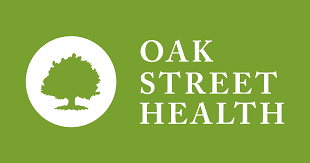
UNDATED – As the country continues to make progress in the fight against COVID-19, concerns about social isolation and fears about the risk of infection continue to play a role in the mental health of older adults.
Oak Street Health, a network of primary care centers that deliver value-based care to adults on Medicare, surveyed 1,000 adults in the U.S., aged 65 and older, asking them to reflect on their sentiment, mental health, and behavior changes at the start of the pandemic compared to their well-being today.
This is the second annual survey Oak Street Health has conducted in conjunction with May’s Mental Health Awareness Month.
According to the survey, more than half of respondents (52 percent) said mental health has significantly or somewhat influenced their overall well being since March 2020. Additionally, there was an 8% increase in this year’s survey of those who reported that they had discussions with a healthcare provider about changes in their mental health as a result of the coronavirus pandemic.
Older adults, however, would much rather have those discussions in person than virtually. More than half of respondents (60 percent) said they are more willing to discuss their mental health with in-person providers rather than telehealth providers (14 percent), while more than a quarter (26 percent) reported they do not feel comfortable discussing their mental health at all.
“While there is a renewed feeling of optimism as vaccination rates continue to rise, it’s vital to remember the toll that the last year has had on older adults’ mental health,” said Katherine Suberlak, VP of Clinical Services at Oak Street Health. “Mental health is a very sensitive topic and our survey shows that older adults prefer the intimacy of in-person visits to share their feelings rather than doing so virtually.”
The findings emphasize the need of three dimensional connections that we’ve lost in the past year. While innovation allowed connections to continue virtually it’s important to acknowledge the grief and loneliness experienced during isolation. A collective healing is possible through meaningful safe in person conversations.
Additional findings from the survey include:
- Family support plays an important role in improving older adults’ mental health. Forty-three percent of seniors surveyed have an increased appreciation for family and/or friends as a direct result of the pandemic. In addition, 35 percent said they feel most comfortable discussing their mental health with family compared to their primary care physician (22 percent), friends (16 percent), and therapists or specialized providers (12 percent).
- There is an increased feeling of hope about the future. Of those surveyed this year, 83 percent reported feeling optimistic about how the coronavirus pandemic will impact their day-to-day lives one to two months from now. That’s compared to 60 percent reporting those feelings in 2020.
- As vaccine rollout continues, seniors are anticipating a life after COVID. Older adults surveyed said that they are most excited to visit with family and friends (33 percent), travel without the fear of getting sick (22 percent), and be in public places without getting sick (20 percent). On a smaller scale, seniors surveyed said they are also looking forward to returning to their daily routines (11 percent) and attending group-related activities, like workout classes, movies, and bingo (8 percent).
“The findings emphasize the need for three dimensional connections that we’ve lost in the past year,” continued Suberlak. “While innovation allowed connections to continue virtually, it’s important to acknowledge the grief and loneliness experienced during isolation. A collective healing is possible through meaningful, safe in-person conversations. As more older adults seek out in-person care such as annual wellness checks, it is important for physicians to think about how older adults respond best to mental health discussions.”
Oak Street Health’s care teams, including social workers and behavioral health specialists, are continuing to make mental well-being a primary topic of discussion with patients as it plays a pivotal role in their overall health and will continue to after the pandemic.
To learn more about Oak Street Health’s value-based primary care model, click here.
About Oak Street Health
Founded in 2012, Oak Street Health is a network of value-based primary care centers for adults on Medicare. With a mission of rebuilding healthcare as it should be, the Company operates an innovative healthcare model focused on quality of care over volume of services, and assumes the full financial risk of its patients. Oak Street Health currently operates more than 80 centers across 13 states. To learn more about Oak Street Health’s proven approach to care, visit oakstreethealth.com.



